Keynote Speaker I
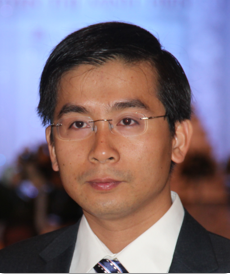
Professor Trung Q. Duong
Queen’s University Belfast, UK
IEEE Fellow, AAIA Fellow
Talk Title: Edge Intelligence URLLC for 6G Digital Twin: Joint Communications and Computation Design
Abstract: The future generation of wireless communications requires the stringent quality-of-service (QoS) requirements in terms of very high data rate, ultra-high success reception rate, and minimal latency. Supported by high QoS wireless communications, digital twin has become a game-changing technology in many applications including smart city, manufacturing, automotive, gaming, entertaining, and climate resilience. Edge computing-based wireless ultra-reliable and low-latency communications (URLLC) in 6G has been considered as a key technique to realise the full potential of digital twin. This talk discusses a joint communications and computation design of URLLC multi-tier computing in 6G that supports digital twin networks, not only fundamental requirements, but also enabling technologies, visions, and future challenges.
Bio: Dr. Trung Q. Duong (IEEE Fellow and AAIA Fellow) is a Chair Professor of Telecommunications at Queen’s University Belfast, U.K. and a Research Chair of the Royal Academy of Engineering, U.K. His current research interests include optimisation, signal processing, and machine learning in wireless communications. He has published more than 420+ published papers with 15,700+ citations and h-index 68. He has served as an Editor for many reputable IEEE journals and been awarded best paper awards in many flagship conferences. He is the recipient of the Royal Academy of Engineering Research Fellowship (2015-2020) and the prestigious Newton Prize 2017. He is a Fellow of IEEE and a Fellow of AAIA.
Keynote Speaker II
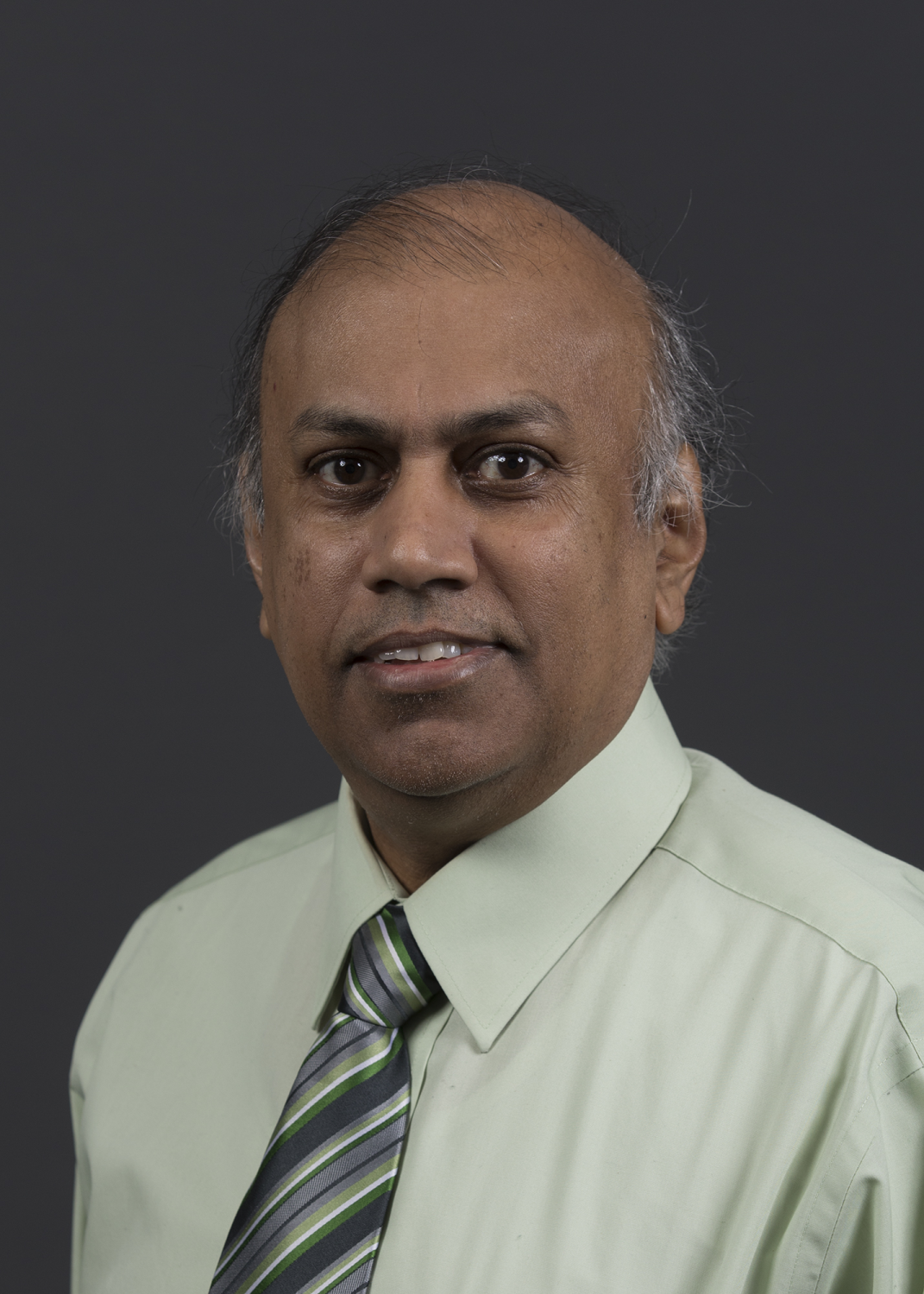
Prof. Jagannathan Sarangapani
Missouri University of Science and Technology, Rolla, MO, USA
IEEE Fellow, IET Fellow
Talk Title: Binary Sparse Signal Recovery with Binary Matching Pursuit
Abstract: Big data-sets are generated in a variety of applications and its efficient analytics is an important area of research. However, sustainable extraction of actionable insights from big data must be dedicated towards understanding and addressing unique challenges which includes noise, spurious correlation, noisy dimension, and heterogeneity. In this talk, a comprehensive overview is presented to address these challenges for the purpose of data analytics and classification.
First, data dimensions are reduced by obtaining a subset of features from the data-set, where this subset is intended to be informative and non-redundant. The reduced dimensional data is utilized by a novel deep neural networks (DNN) based framework where a direct error-driven learning scheme is introduced for classification. In the proposed framework, the concept of a neighborhood is introduced and generated by introducing perturbations into the dimension reduced data-batch. Using additional data-samples generated from the neighborhood, an approximation of generalization error is obtained. An overall error, comprised of learning and the approximate generalization errors, is defined, which is then used to define a performance measure for each layer in the NN. A novel layer-wise NN weight-tuning law is then obtained through the performance measure where the overall error is directly used for learning. The direct error-driven learning regime presented here reduces generalization errors including noisy dimensions while mitigating the issue of vanishing gradients that is common with DNN. To demonstrate the efficiency of the proposed methodology, multiple data-sets covering the application of classification are utilized and evaluated and results will be presented. Future effort on deep reinforcement learning-based online games will be covered.
Bio.: Dr. Sarangapani Jagannathan is a professor and Rutledge-Emerson chair of Electrical and Computer Engineering at the Missouri University of Science and Technology (former University of Missouri-Rolla). He is also a Professor (courtesy) in the Department of Computer Science. He served as a Director for the NSF Industry/University Cooperative Research Center on Intelligent Maintenance Systems for 13 years. His research interests include learning, adaptation and control, secure human-cyber-physical systems, prognostics, and autonomous systems/robotics.
He has coauthored over 500 IEEE peer-reviewed journal/conference articles, written several book chapters, authored/co-edited 6 books, has received 21 US patents and one patent defense publication with his 32 doctoral and 31 M.S thesis students. He served on many editorial boards and has been on organizing committees of several IEEE Conferences. He received many awards including the 2021 University of Missouri Presidential Award for Sustained Excellence in Research and Creativity, 2020 Best Associate Editor Award, 2018 IEEE CSS Transition to Practice Award, 2007 Boeing Pride Achievement Award, 2001 Caterpillar Research Excellence Award, and 2000 NSF Career Award. He is a Fellow of the IEEE, National Academy of Inventors, and Institute of Measurement and Control, UK, Institution of Engineering and Technology (IET), UK and Asia-Pacific Artificial Intelligence Association.
Keynote Speaker III
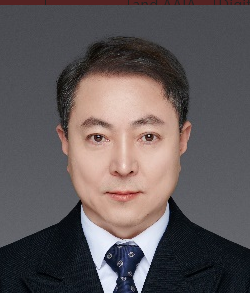
Prof. Wenping Cao
Anhui University
Marie Curie fellow, Royal Society Wolfson Fellow, and IET Fellow
Talk Title: Thermal Management of Power Electronic Devices
Abstract: This talk is concerned with power electronics condition monitoring technologies. It will start with a basic knowledge of thermal modelling and condition monitoring technologies, followed by the failures and causes of major power electronics devices arising from electrical, thermal and environmental ageing. Generally, condition monitoring systems consist of: 1) sensors and sensing technologies to capture the signal or the state of the healthy condition, 2) network and data to collect and process the information; 3) retrieval of key parameters and fault signatures, and 4) actions to respond to the estimated conditions including active gate drives and heat sinks. Finally, the implementation of the IPM 2.0 technology will improve the through-life reliability and cost efficiency of future power electronic devices.
Bio.: Cao Wenping, Ph.D., professor and doctoral supervisor of Anhui University. In 1991, he received a bachelor's degree in electric traction transmission control from Beijing Jiaotong University, and in 2004 he received a doctorate degree in electrical machinery and drives from the University of Nottingham, UK. He successively worked at the University of Sheffield, University of Nottingham, University of Newcastle, Queen's University and Massachusetts Institute of Technology. He has been engaged in thermal analysis, fault diagnosis and condition detection of motors and power electronic converters for a long time, presided over and completed 32 projects funded by the UK and the EU, with a total amount of about 6.6 million pounds. Published more than 300 papers, with a total impact factor of over 360. He won 8 best paper awards, 6 best poster awards, and published 10 English monographs. Guided 21 doctoral students and more than 200 master students. Received the Royal Society Wolfson Research Merit Award in 2016. In 2021, he was selected as one of the top 100,000 scientists in the world in 2021, with an H-index of 66. In 2022, he was selected in the "Top 2% Top Scientists in the World": "Lifetime Scientific Influence Ranking" and "2022 Scientific Influence Ranking". Won 2 Gold Medals at the 48th Geneva International Exhibition of Inventions in 2023. Served as the editorial board member of IEEE Transactions on Power Electronics, IEEE Transactions on Industrial Electronics, IEEE Transactions on Industry Applications, IEEE Industry Applications Magazine, IET Power Electronics, Electric Power Components and Systems and other internationally renowned electrical engineering journals, IEEE Industrial Electronics Society UK and Chairman of the Irish Division (IE-13). He is Marie Curie fellow, Royal Society Wolfson Fellow, and IET Fellow.
ISEEIE Previous Speakers
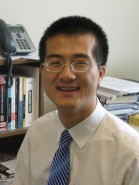
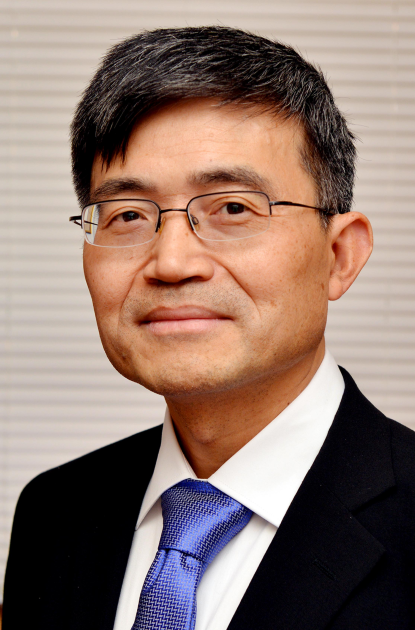
Prof. Qinmin Yang Prof.Zhong-Ping Jiang
Zhejiang University Tandon School of Engineering
Zhejiang, China New York University
中国浙江大学 纽约大学坦顿工程学院